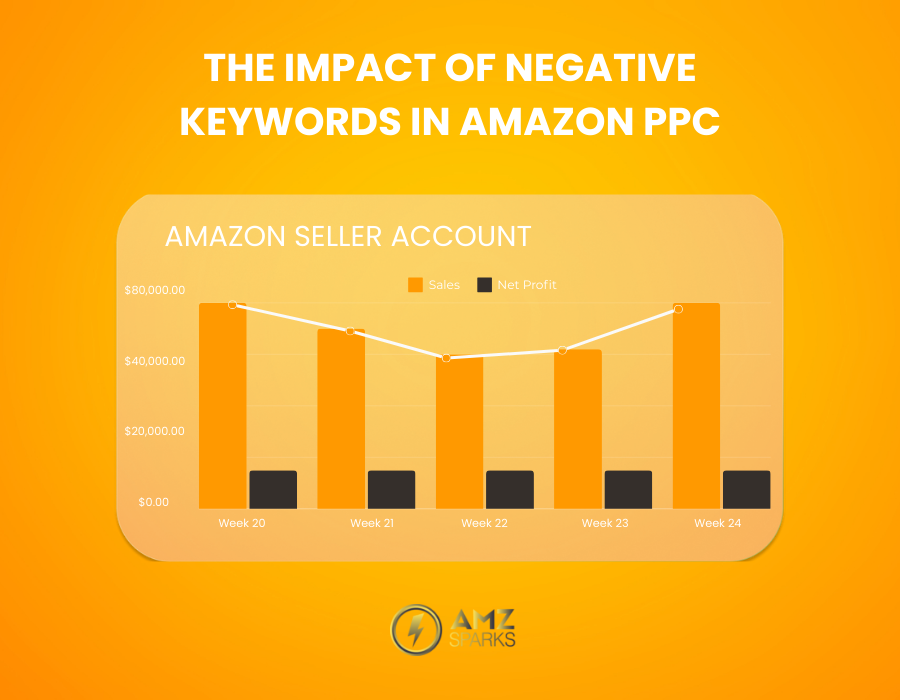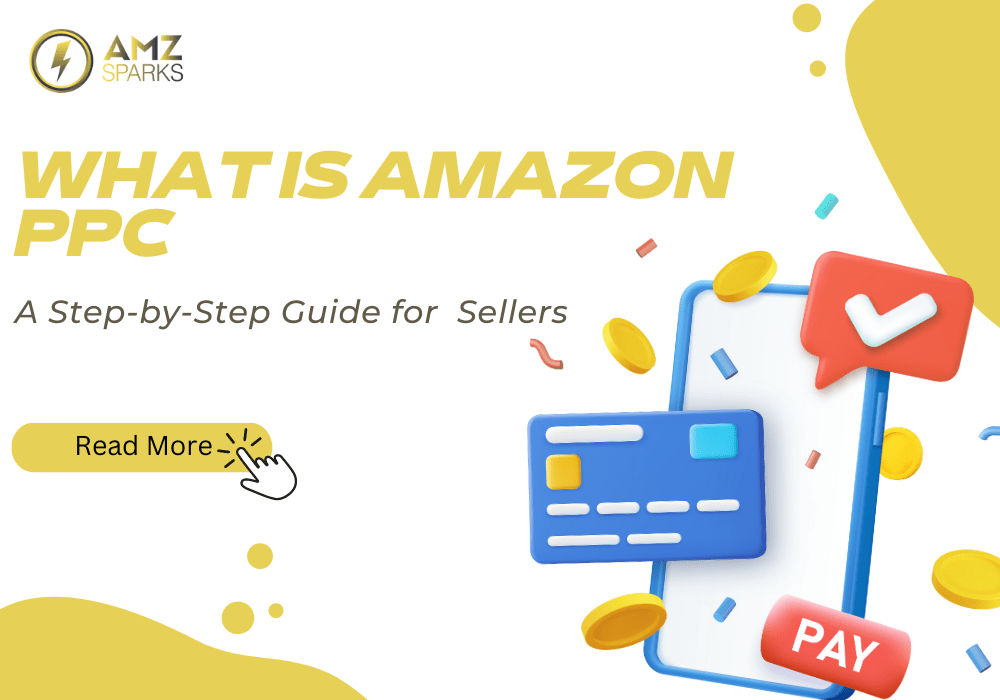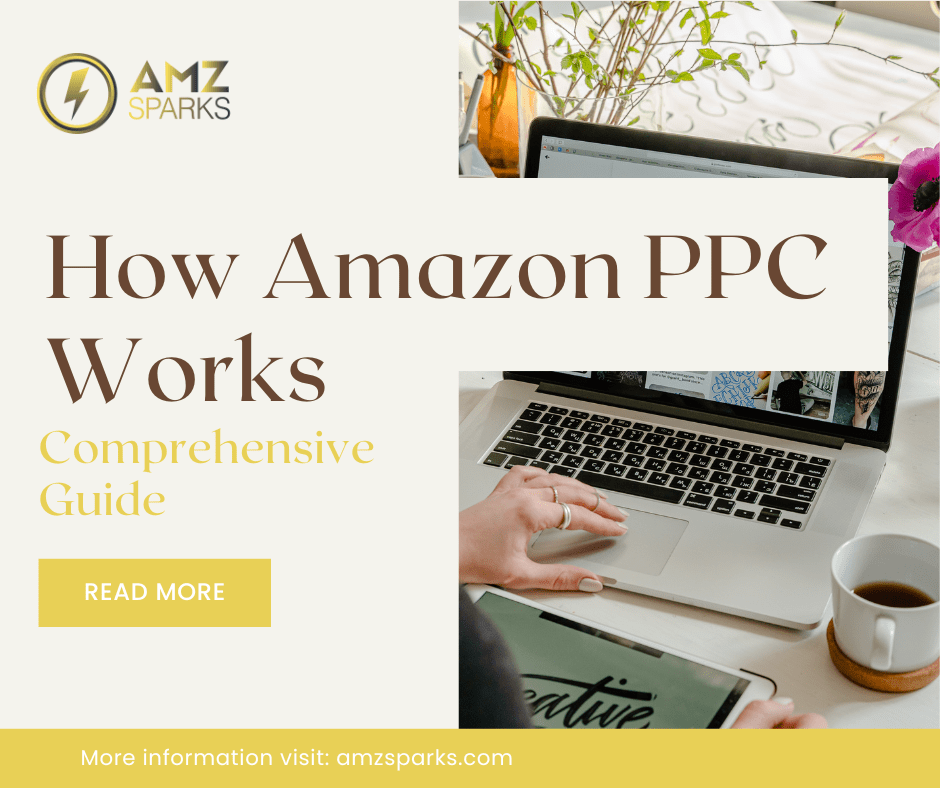Suppose you are the owner of a bakery located on a one-side street which has got quite heavy traffic. After all, you wouldn’t like your scrumptious cupcakes to be marketed only to auto part seekers, would you? That is what Negative keywords in Amazon PPC advertising mean for you. Implemented through heads like Amazon PPC Services, Amazon permits sellers to place advertisements of their products in the search results section. On the other hand, negative keywords behave like a shield by denying the ads with such keywords to be displayed to users seeking the wrong search terms. This means that only the carriers get to see your ads, people who have a keen interest in what you are selling.
The Benefits of Using Negative Keywords
Negative keywords are those that one disqualifies to be used in the advertisement or search such that the ad does not show up in the wrong search result. Here are some detailed benefits of using negative keywords:
Reduce Wasted Ad Spend
Every click on your ad costs money. But clicks from irrelevant searches are a drain on your budget. Let’s say you sell high-quality, handcrafted leather wallets. You wouldn’t want your ad showing for searches like “cheap wallets” or “discount wallets.” Adding these terms as negative keywords prevents wasted clicks from bargain hunters, saving your budget for users likely to convert those seeking premium leather wallets.
Improve Click-Through Rate
Negative keywords for this purpose help in the process by way of eliminating unwanted search results. Such a method raises your click-through rate, the proportion of people who viewed your ad and clicked it. Hence, a high CTR means that your ads are relevant to the audience and, therefore, there will be a higher probability of making a sale.
Increase Conversion Rates
It is better to keep such negative keywords as ‘used,’ ‘second hand,’ etc., in the list of excluded search terms. This is a form of focused marketing since more people will be visiting the page since it will be appearing on their screens thus increasing the number of clicks and people who will buy the products that are being advertised.
Enhance Return On Ad Spend
Return On Ad Spend or ROAS is an important aspect of Amazon PPC advertising. It compares the recorded income against the expenses placed on ads, particularly the cost of airing. The negative keywords directly help in improving the ROAS all by themselves. This means that you rule out every other click as a potential waste of your Ad Spend targeting potential customers. It gives you a higher rate of sale and thus gives you a high return on the investment.
Also Read: Sponsored (Products vs Brands vs Display) on Amazon
Strategies for Effective Negative Keyword Use
Having comprehended the positive effects, it is time to consider measures that will help to apply negative keywords efficiently in Amazon PPC strategies.
Identify Irrelevant Search Terms
The first step is the exclusion of specific keywords that trigger your ad. The “Search Terms” report displayed in PPC campaigns on Amazon has worthwhile information. This report provides a list of all the keywords that triggered your ad to show. You can also see which terms are not bringing any hits or conversions and can, therefore, be discarded. These are the best candidates for adding to your negative keywords list.
Use Match Types Strategically
Like all the keywords, negative keywords employ various match types to enable one to regulate the stringency of the search. Here’s a breakdown of the two most common types:
Exact Match
This excludes your ad from showing search results that contain the negative keyword with any other words or phrases around it. For instance, specifying the “used laptops” as the exact match negative keyword will then eliminate the ad from appearing all over “used laptops” but not over “gaming laptops used”.
Phrase Match
This is broader and considers searches that include the entire negative keyword phrase. Including the word “free printable planner” as a phrase match would eliminate your ad from appearing with terms like “free printable planner templates” or “buy a printable planner”.
The process of selecting the right match type is dependent on the specific negative keyword. It is understandable for broader terms like ‘gift ideas’ where the exact match might be preferable. Whereas for longer phrases such as ‘refurbished smartphones’, a phrase match could work better.
Also Read: Is Amazon PPC Worth It in 2024? (Pros & Cons)
Common Misconceptions about Negative Keywords
Some people have doubts that negative keywords can filter out possibly related keywords. Alternatively, due to the presence of detailed search terms and a regular assessment of the performance indicators, the risk can be successfully managed.
Besides, negative keyword lists are not in any way stagnant. Since your products and services portfolio will be dynamic as the search keywords surely will, so will your list of negative keywords. Make it a point to refer to your Search Term reports and try to find other irrelevant terms that you can include periodically if necessary.
Advanced Negative Keyword Strategies
Ask oneself whether the promotion is more focused on creating brand exposure or if there are required sales in the next quarter. Looser negative keywords can be used in awareness campaigns than in conversion ones, but it is possible to find the right balance.
It can be helpful during the launch of a new product to filter out the searches for an older version of the product or any other product completely to let your ads target the user in the best possible way who will be interested in the new product
The Long-Term Benefits of Negative Keywords
The literature review section of the present paper has reviewed various existing academic papers; such works include The Concept and Application of Negative Keywords, Positive Impact of Negative Keywords, The Significance of Including Negative Keywords, Negative Keywords in Amazon PPC
Improve account health
This element of PPC campaign management serves to minimise additional clicks that lead only to your site’s Home page and enhance the general quality of your advertising. This may lead to a better health rating of the account with Amazon which translates to cheaper advertising costs.
Enhance campaign efficiency
The use of negative keywords helps to get rid of unnecessary clicks which take up the ad spent on the campaign hence making the campaign more effective and profitable.
Streamlined Campaign Management
A well-maintained negative keyword list simplifies campaign management in the long run. By eliminating irrelevant traffic, you spend less time analysing irrelevant data and can focus on optimising campaigns for greater profitability and growth.
Laser-Focused Targeting
Negative keywords refine your audience targeting, ensuring your ads reach highly relevant shoppers actively seeking products like yours. This leads to a higher click-through rate (CTR) and potentially increased conversion rates, boosting long-term sales potential.
Improved Brand Perception
When your ads regularly show for pertinent searches—like those related to our Amazon Brand Management Services—you establish brand credibility and confidence with possible consumers. This promotes a good brand image, which raises brand recognition and can result in possibly better customer lifetime value. Using good brand management strategies can also help to maximise your advertising plan and guarantee that your brand stays first of mind. Excellent brand management can also improve consumer loyalty, therefore promoting long-term corporate success.
Also Read: Hire Someone Who Provides Amazon PPC management service
Conclusion
All in all, negative keywords are something you can and should use when thinking of your Amazon PPC campaigns. They help you:
- Prevent spending a lot of money on adverts by preventing people from clicking on the wrong search options.
- Professionally convert your ads so frequently people click on them and tend to purchase from you.
- To get more from an ad spend of money, increase ROAS by targeting only potential customers
Consistently monitoring the used search terms, as well as adjusting the list and testing different strategies, will ensure the targeted audience and increase the efficiency of the Amazon PPC Management Services campaigns. Thus, it’s critical to invest your time and efforts in the negative keywords to achieve remarkable results in the future of your Amazon business.
FAQs
Can negative keywords hurt my campaign performance?
Yes, but it’s improbable if they are put into practice methodically. If you choose to over-exclude your content out of search, then you might reach fewer people. The idea is to disregard such terms that do not get the targeted audience yet cost a lot of money. Carry out frequent revisions of search term data to uncover high-impact negative keywords and at the same time, exclude searches with high sales potential.
How often should I review my negative keyword list?
Regularly review your negative keyword list, ideally every week or two. You can adjust the frequency based on campaign size and budget.
Are there any tools that can help me manage negative keywords?
Yes! Several third-party applications can help you analyse the data of your campaign and indicate negative keywords. Some are automatic, suggesting terms that are then tagged according to pre-specified criteria. Check these measures to enhance your negative keyword operations.
Can Amzspark help me with negative keywords?
Absolutely! At Amzspark, we provide our clients with professional services of both identifying the negative keywords as well as the integration and constant optimisation of the same. Our experienced team can help you choose high-impact negative keywords, set up specific peculiarities of the campaign, and target the right audience to achieve a visible result. Amzspark’s solutions will help you to get the most out of negative keywords and achieve maximum results in Amazon PPC.



